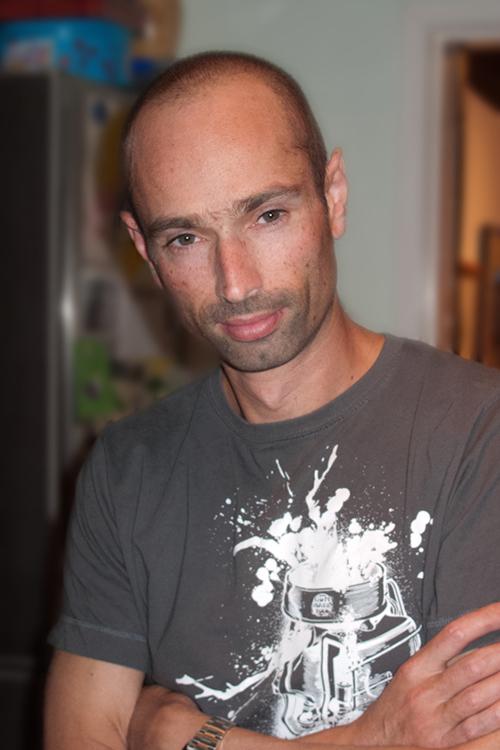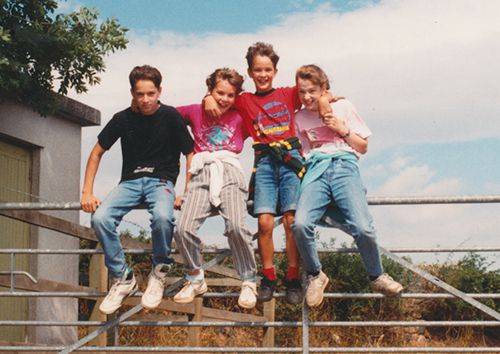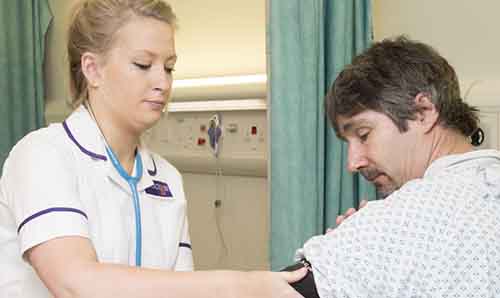
James' legacy, by his mum Mary
James graduated in computer science and went on to have a successful career in finance. Tragically, James died from a rare form of bowel cancer in 2012. He was just 37 years old. Now, his mum Mary and family are seeing his memory live on through his legacy.
Mary’s story
James was the eldest of my four children. He was very hardworking, but also irreverent and incredibly good fun. He loved his family and was fiercely protective of his younger sisters, which could be difficult for the girls where boyfriends were concerned! He had a healthy rivalry with his brother, who went to university in London, and checked up on him to make sure that he worked hard.
High performance cars were James’ major passion, but he also had a black belt in Tae Kwando and was a qualified instructor. He liked all forms of technology and electronics and enjoyed experimenting with circuits and electronic systems and spent ages perfecting his music system.
James was dyslexic; his spelling was erratic and his writing extremely untidy. However he was incredibly logical. We always knew he was very bright. He had been interested in computing since he was at primary school when we bought our first BBC computer. Computing was something he was really good at – he could just do it.

Coming to Manchester
James had always wanted to study Computer Science at university. He looked at several universities but really wanted to go to Manchester. He graduated with a First Class Honours and went on to study for a Master’s degree.
After university he was recruited by J.P. Morgan in London and, after a couple of years in the back office, became a trader.
James’ diagnosis
Although incredibly physically fit, James had always suffered from vague intestinal problems. Over the years had been told that he had irritable bowel syndrome, but in 2006 the symptoms were getting worse. He consulted yet another doctor, who found that he had a polyp in the bowel. This was unusual at his age and he needed surgery to have it removed.
The polyp was found to be cancerous but the cancer did not seem to have spread. During a further operation to resection the bowel, it was discovered that James also had a rare appendix tumour, which was non-defined. This meant that they weren’t able to remove it during that operation because it needed specialist treatment.
At that time there were only two places in the UK able to deal with this type of cancer: Basingstoke and The Christie in Manchester. James went to Basingstoke as he was living in London. By the time they could operate the cancer had spread extensively.
The surgeons did an amazing job. They removed his entire large bowel and as much of his small bowel as they could while leaving him enough to live, but they were not able to remove all the cancerous tissue. We were told that he probably only had six months to live. This was a tremendous shock; he was only 31 and otherwise extremely fit.
A difficult time
James had a variety of treatments. The chemotherapy was hard and he frequently had to be rushed to hospital with various infections and surgery-related issues. Sometimes an infection would come on so quickly we thought he would die before we got to the hospital. It definitely wasn’t easy, not for James and not for his family and friends. What can I say? You go into, what we came to call, “cancer mode”. If you have been through this you will know it is a very hard thing to live through.
James continued to work when he could. He continued to modify and drive his cars and to live his life to the full. He researched various treatments and became an expert in his illness, which was important, as his cancer was rare and there was no textbook to guide doctors in their approach to the illness. He was fortunate in that one of his sisters and his brother were by this time doctors and he was able to use them as sounding boards. He was amazing.
In 2009 my husband was also diagnosed with terminal cancer: melanoma. They were both sick at the same time – my husband in Manchester and James in London.

Family support
By mid-2012 it was clear that James was getting worse. I am so grateful that there were a lot of us – I don’t know how people manage on their own. My daughters and their husbands and my son were so supportive to James and to my husband and I. It definitely helped that we are such a close family.
James desperately wanted to live and I am sure that his determination kept him alive where others might have succumbed much earlier. It wasn’t an easy road but he was emotionally strong and so very courageous. He lived for six years after his diagnosis and continued working until six months before he died in November 2012. My husband died four months later.
James’ legacy
James talked to us about his Will. He left half of his estate to charity and wanted us to decide where it went. The criteria were that the money had to make a difference to people’s lives and be relevant to him or to members of our family. James had mentioned The University of Manchester and had said that if we couldn’t decide where the money should go then it should go to the University.
We all chose projects that we thought were important but immediately put aside a sum for the University. We were keen to use a large portion of the money to fund research, as it not only increases the font of knowledge but also gives someone else the chance to excel.
Supporting students
We funded two PhD Scholarships in Computer Science with James’ legacy. One of these is related to cancer research and the other to artificial intelligence and neurocomputing, which James would have loved. We also funded equipment for the Department of Computer Science’s outreach programme to inspire students in schools.
Initially it was hard to approach people to discuss James’ legacy as each person had to be told about the reason for the bequest, which was difficult. But once the initial contact had been made the overwhelming feeling was pride. Pride that my amazing son had done this and that he wanted to help people in some way and give them the opportunity to change their lives because of it.

.jpg)
